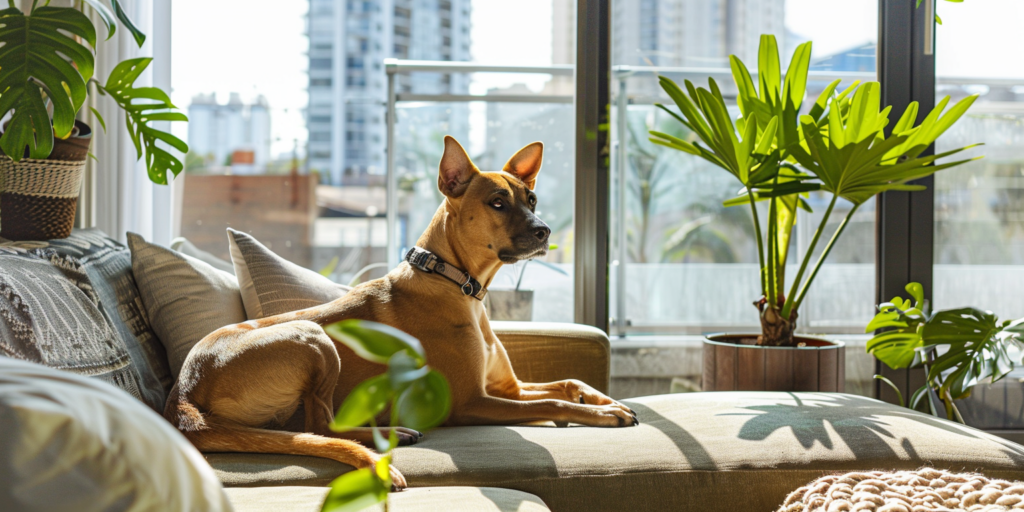Choosing the right dog for your lifestyle is a crucial decision that significantly impacts both your life and the dog's well-being. With numerous breeds and personalities to choose from, it's essential to find a dog that fits well with your lifestyle, activity level, and living situation. This guide will help you make an informed decision, ensuring a harmonious and fulfilling relationship with your new furry friend.
Assess Your Lifestyle
Before deciding on a breed, take a close look at your lifestyle and consider the following factors:
1. Activity Level
Different dog breeds have varying energy levels and exercise needs. Consider your own activity level and how much time you can realistically dedicate to exercising your dog.
- Active Lifestyles: If you enjoy running, hiking, or outdoor activities, consider high-energy breeds like Border Collies, Labrador Retrievers, or Australian Shepherds.
- Moderate Activity: If you prefer regular walks and playtime but not intense exercise, breeds like Bulldogs, Basset Hounds, or Shih Tzus might be a good fit.
- Low Activity: If you have a more sedentary lifestyle or limited mobility, look for low-energy breeds like Pugs, French Bulldogs, or senior dogs.
2. Living Space
Your living situation is another important consideration. Different breeds have different space requirements.

- Apartments/Small Homes: Small or medium-sized dogs that are less active indoors, such as Dachshunds, Chihuahuas, or Pomeranians, are better suited for smaller living spaces.
- Houses with Yards: Larger breeds or those with higher energy levels, like Golden Retrievers, Boxers, or Beagles, can benefit from having a yard to run and play in.
3. Family Dynamics

Consider the people in your household and their needs.
- Children: Families with young children might prefer breeds known for their patience and gentleness, such as Labrador Retrievers, Golden Retrievers, or Cavalier King Charles Spaniels.
- Elderly: Seniors might benefit from smaller, low-maintenance breeds like Maltese, Shih Tzus, or Bichon Frises.
- Other Pets: If you have other pets, look for breeds known for their sociability and compatibility with other animals, such as Cocker Spaniels, Papillons, or mixed breeds from shelters that have been socialized with other pets.
4. Time Commitment
Dogs require varying levels of time commitment for grooming, training, and attention.
- High Maintenance: Breeds with long coats, such as Poodles, Shih Tzus, or Afghan Hounds, require regular grooming.
- Low Maintenance: Short-haired breeds like Beagles, Boxers, or Boston Terriers are easier to groom and maintain.
- Training Needs: Some breeds are easier to train than others. Breeds like German Shepherds, Poodles, and Border Collies are highly trainable, while others may require more patience and consistency.
Research Breeds
Once you've assessed your lifestyle, research various breeds to find one that matches your criteria. Here are some additional factors to consider:
1. Temperament
Each breed has a general temperament, though individual dogs may vary. Look for a breed with a temperament that suits your personality and lifestyle. For example, if you want a calm and affectionate dog, consider breeds like the Cavalier King Charles Spaniel or the Basset Hound.
2. Health Concerns
Some breeds are prone to specific health issues. Research common health problems associated with breeds you're interested in and consider whether you can manage potential health care needs. Mixed breeds from shelters often have fewer health issues due to genetic diversity.
3. Size
Consider the adult size of the dog. Puppies grow quickly, and a cute, small puppy might become a large dog that requires more space and food than you anticipated.
Consider Adoption
Adopting a dog from a shelter or rescue organization is a wonderful option. Many mixed-breed dogs in shelters make fantastic pets and often have fewer health issues. Shelter staff can help match you with a dog that fits your lifestyle and needs. Additionally, adopting an older dog can be a great option if you want a pet with an established temperament and training.
Meet the Dog

Before making a final decision, spend time with the dog to ensure a good match. Observe their behavior and how they interact with you and your family. Consider fostering a dog for a trial period to see how they fit into your home and routine.
Prepare Your Home

Once you've chosen your dog, prepare your home for their arrival. Stock up on essential supplies such as food, bowls, a bed, toys, grooming tools, and a crate if you plan to crate train. Create a safe and comfortable space for your new pet to settle in.
Conclusion
Choosing the right dog for your lifestyle is a significant decision that requires careful consideration and planning. By assessing your activity level, living space, family dynamics, and time commitment, you can find a dog that will be a joyful and compatible addition to your home. Remember to research breeds, consider adoption, and spend time with potential pets before making a final decision. With the right preparation and a thoughtful approach, you'll be well on your way to building a loving and fulfilling relationship with your new canine companion.
Let our AI tool help you out finding the right dog breed.